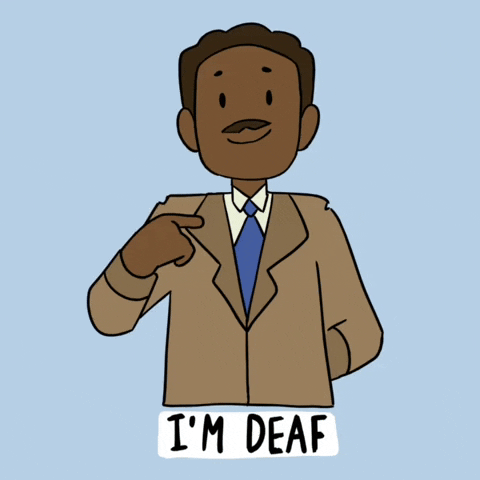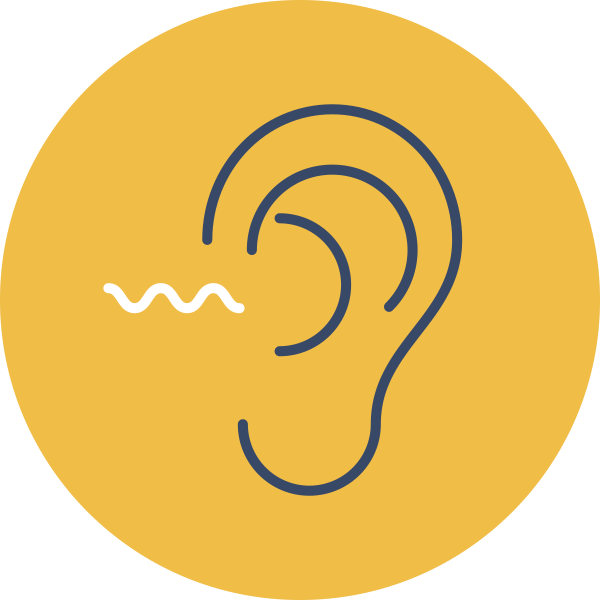“Sometimes, you wake up and the world around you just… goes silent.”
Understanding Sudden Ear Loss (Sudden Hearing Loss)

Sudden hearing loss—especially when one day your ear works and the next it doesn’t—is a medical emergency. Typically, sudden hearing loss refers to a drop of 30 decibels or more across three consecutive frequencies within 72 hours NIDCDAAFPVerywell Health.
Two Main Types
- Conductive Hearing Loss: When something physically blocks sound—like earwax buildup or fluid—hearing can drop abruptly. This is often treatable quickly Verywell HealthHearing Loss Association of AmericaAAFP.
- Sensorineural Hearing Loss (SSHL): A numbness in the nerve-based hearing mechanism inside the ear. Causes range from inflammation and injury to rare tumors. SSHL is urgent and demands immediate action Verywell Health+1NIDCDBarrow Neurological Institute.
“Sudden hearing loss usually occurs in one ear… It can be a loss of hearing volume or a loss of hearing clarity,” explains Dr. Yu-Tung Wong, ENT specialist Cedars-Sinai.

Why It Happens
There’s often no obvious cause for SSHL—most cases are idiopathic—but possible triggers include:
- Viral infections
- Circulatory issues like micro-embolisms
- Autoimmune inner-ear disease
- Rare acoustic neuromas (benign tumors)
- Side effects from toxic medications
Barrow Neurological InstituteMount Sinai Health SystemNIDCDWikipediaVerywell Health.
“I lost hearing overnight—and feared it wouldn’t come back.”
This was the experience of a nursing student who, after acute vertigo and hearing loss in one ear, was quickly diagnosed with SSHL. Facing a 2% chance of natural recovery, she eventually received a cochlear implant that restored hearing—albeit robot-like—and has since become a passionate advocate for hearing protection People.com.
What To Do—Fast
1. Don’t Wait—Act Immediately
Delaying care drastically reduces chances of recovery. Many guidelines urge treatment within 2 weeks, ideally within a few days NIDCDPubMedAAFPStanford MedicineHearing Loss Association of AmericaAAO-HNS.
2. Get Evaluated Immediately
Visit a primary care provider or ENT. They'll:
- Rule out blockages (like earwax)
- Refer for audiometry to confirm nerve-related hearing loss
- Possibly order MRI if tumors or vestibular issues are suspected
Hearing Loss Association of AmericaNIDCDAAFPPubMedBarrow Neurological InstituteVerywell Health.
3. Steroid Therapy—First Line of Defense
Corticosteroids (oral or injected into the ear) are widely used to reduce inflammation and promote healing. Treatment within the first 2 weeks offers the best outcomes NIDCDRACGPMount Sinai Health SystemHearing Loss Association of AmericaPubMedWikipedia.
4. Salvage Treatments
If hearing hasn’t improved within 2–6 weeks, doctors may offer intratympanic steroid injections directly into the ear. Hyperbaric oxygen therapy can also be considered—usually as an adjunct to steroids PubMedMedscapeWikipedia.
5. Follow-Up & Rehabilitation
After treatment, follow-up audiology tests are advised, ideally within 6 months, to assess progress and discuss rehabilitation options such as hearing aids or cochlear implants PubMedCleveland ClinicAAFP.
6. Long-Term Support
If hearing remains impaired:
- Hearing aids for mild to moderate loss
- Cochlear implants for severe loss
- Explore assistive technologies or auditory training
Cleveland ClinicPeople.comVerywell Health.
Recovery: What to Expect
- Spontaneous recovery occurs in ~50% of untreated cases; with treatment, up to 75% may regain hearing Hearing Loss Association of AmericaVerywell Health.
- Prognosis improves with early treatment, milder initial loss, no dizziness, and younger age WikipediaHearing Loss Association of America.
Final Thoughts
“When hearing suddenly vanishes, every minute counts.” If you or someone you know experiences sudden hearing loss—swift evaluation, early treatment, and expert follow-up could be the difference between silence and sound.
Key Takeaway:
Sudden ear loss is urgent. Act fast, seek ENT care, ask for steroids, and follow treatment through. Your hearing may just be saved.
